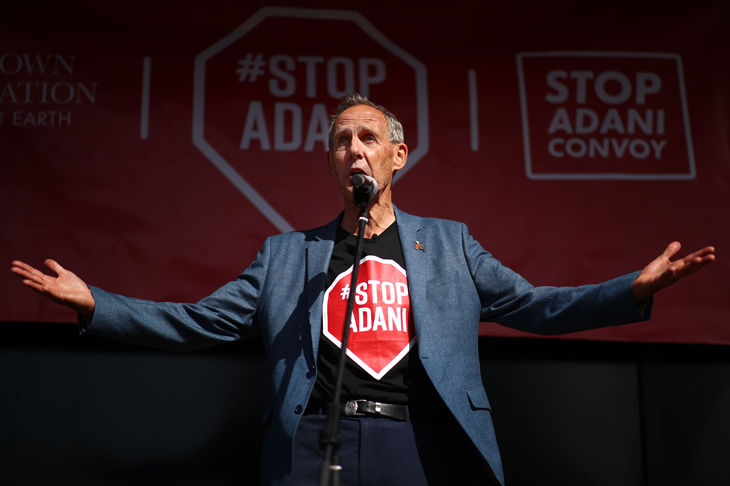Now that Adani’s Carmichael mine in remote central Queensland is, after nine tempestuous years, under way since at last getting governmental approval and that Scott Morrison and Indian Prime Minister Modi have chummily congratulated each other on their election wins, Australia should be looking forward to India becoming what has been described as ‘potentially the most significant business destination for Australia in coming decades’. But Morrison may need another miracle to achieve the ‘transformational expansion’ in our relationship with India that was predicted in last year’s government-commissioned Varghese report. With the Indian economy, currently the sixth-largest in the world, forecast to equal the US within 11 years and to be the world’s second-largest by 2050, Varghese sees our exports to India trebling to $45 billion within 16 years as our investments there multiply ten-fold to over $100b.
But first, there are some problems to be fixed – with a real prospect that Adani could face even more foreign-funded ‘lawfare’. The Stop Adani website, in denial of the election result, now claims ‘the vast majority of Australians do not support this coal mine’ and the government ‘has no mandate’ on it, responding to last month’s governmental approvals with the warning: ‘People power has stopped Adani for seven years and that’s what’s going to stop it now… [we’ll] do whatever it takes to stop Adani… Lawyers are looking into possible legal actions’. As Bob Gottliebsen recently noted, Indians see the Adani roadblocks not as an environmental issue but as an illustration of racist discrimination against Indians, reinforced by the Left’s anti-Adani focus on foreign ownership, which Morrison has criticised.
Adani’s persistence with its Australian coal project in the face of such hostility is because of India’s continuing need for coal for many years. As the Australian Institute of International Affairs Journal recently demonstrated, ‘India is not endowed with large reserves of gas or uranium. It has to import enriched uranium for its nuclear power and it faces difficulties accessing the necessary technology and fuel for its reactors in global markets (including from Australia). Its attempts to expand its hydroelectric power supply have also been met with significant domestic opposition. It has embarked on ambitious solar and wind development but India has no option other than to rely on coal for its baseload power…. Australian coal – which emits less carbon and is of a higher calorific value – is far preferable to the poor quality local or imported Indonesian coal’.
Potential Indian investors in Australia who perceive, rightly or wrongly, that the goal posts for Adani have been moved with every political twist, see this as an issue of trust and fairness, creating an impression among Indian businesses that they may not be treated fairly in Australia.
But the Lowy Institute reckons that the big concern in New Delhi is not Adani, but Australia’s attitude towards India, China, and the region more broadly. ‘India wants Australia to diversify its trade and security relationships, to resist Chinese pressure, and to deal effectively with alleged political interference by the Chinese Communist party in our society… Above all, what New Delhi wants to see is a stable government in Canberra capable of managing relations with key regional powers in a measured way. It wants continuity, and fears sudden [policy] changes.’
However, there is a diplomatic problem that should never have been allowed to fester: the perception within India, revealed in an impressive recent report by the Perth USAsia Centre, that Australia has not made sufficient efforts to promote India’s desire to join APEC, despite acknowledging that India’s accession would be in Australia’s strategic and economic interests. ‘Now that India has made significant progress in economic reforms and trade liberalisation, Australia has a lot to benefit from pushing India’s inclusion’. The strategic benefits to the region of India joining APEC include balancing out the high dependence of APEC member countries on China. The absence of India is seen as ‘a flaw that undermines efforts to expand trade and innovation throughout the region’. India may not be the next China, but, as a democracy, it could be our more compatible alternative.
Got something to add? Join the discussion and comment below.
Get 10 issues for just $10
Subscribe to The Spectator Australia today for the next 10 magazine issues, plus full online access, for just $10.
You might disagree with half of it, but you’ll enjoy reading all of it. Try your first month for free, then just $2 a week for the remainder of your first year.














Comments
Don't miss out
Join the conversation with other Spectator Australia readers. Subscribe to leave a comment.
SUBSCRIBEAlready a subscriber? Log in